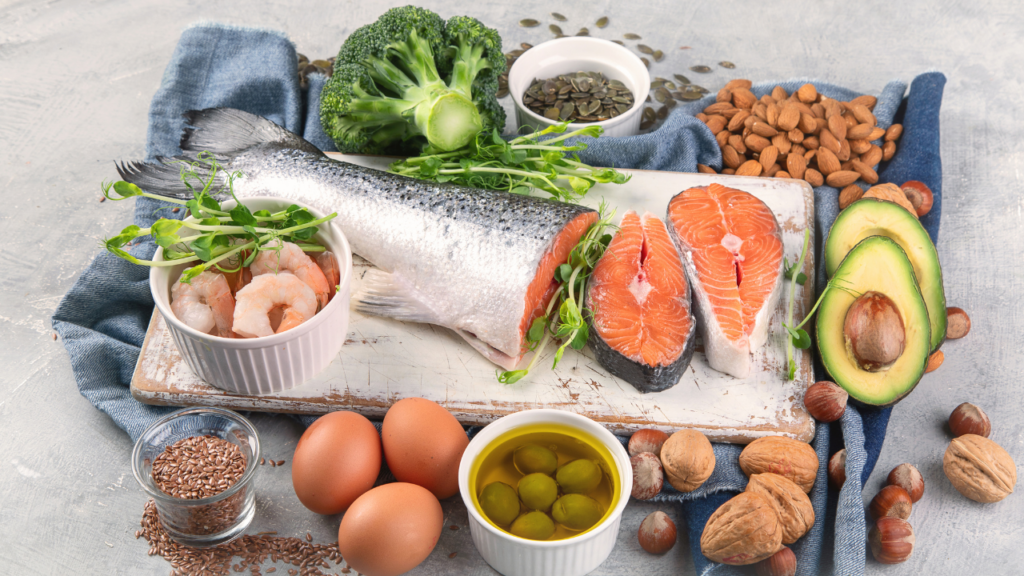10 Ways Omega-3s Can Transform Your Heart and Skin—Are You Getting Enough?

As we age, our bodies undergo significant changes, particularly in how our skin looks and how well our heart functions. For women, these changes can be even more pronounced, with hormonal shifts adding extra stress on both the cardiovascular system and the skin. This is where Omega-3 fatty acids come into play. These healthy fats aren’t just good for overall wellness—they’re especially vital for aging women, offering powerful benefits for heart health and skin vitality. If you’re in your 40s or beyond and noticing changes in your energy levels, skin texture, or overall well-being, Omega-3s could be the game-changer you’ve been missing. Let’s explore why these essential fats are so crucial and how they can help you age gracefully, inside and out.
What Exactly Are Omega-3 Fatty Acids?
Omega-3s are a type of fat that your body can’t produce on its own, so you need to get them through food or supplements. There are three main types:
- ALA (Alpha-linolenic acid): Found in plant-based sources like flaxseeds and chia seeds.
- EPA (Eicosapentaenoic acid): Commonly found in fatty fish like salmon and sardines.
- DHA (Docosahexaenoic acid): Also found in fish, and known for its benefits for brain and eye health.
While all three are beneficial, EPA and DHA are particularly important when it comes to heart and skin health.
Heart Health: How Omega-3s Keep Things Ticking Smoothly
When it comes to your heart, Omega-3s can work wonders. Here’s how they contribute to cardiovascular health:
1. Reducing Inflammation
Chronic inflammation is one of the key contributors to heart disease. Omega-3s help reduce inflammation in your body, which in turn lowers your risk of developing serious heart issues like atherosclerosis (when your arteries harden).
2. Lowering Triglycerides
Omega-3s have been shown to help lower triglycerides, a type of fat in your blood that, in high levels, can increase the risk of heart disease. They also give your HDL (good) cholesterol a boost, which is a win for your heart.
3. Managing Blood Pressure
Regular consumption of Omega-3s can help lower blood pressure. By relaxing blood vessels and improving blood flow, they can help reduce the risk of high blood pressure, which is a major factor in heart disease.
4. Helping Prevent Irregular Heartbeats
Omega-3s can stabilize your heart’s rhythm, reducing the chances of developing arrhythmias (irregular heartbeats) that could potentially lead to more serious conditions.
5. Lowering the Risk of Heart Attack and Stroke
By tackling things like high triglycerides, blood pressure, and inflammation, Omega-3s significantly lower your risk of heart attacks and strokes. Regular intake is linked to a reduced chance of major cardiovascular events.
Skin Health: How Omega-3s Help You Glow
Just like your heart, your skin benefits from a healthy dose of Omega-3s. Here’s how these fats help keep your skin looking and feeling its best:
1. Locking In Moisture
Omega-3s strengthen the skin’s natural barrier, helping to lock in moisture and keep irritants out. This is especially helpful for preventing dry, irritated skin and conditions like eczema.
2. Reducing Inflammation and Redness
If you struggle with acne, psoriasis, or rosacea, Omega-3s can help. They reduce inflammation in the skin, which can calm redness and irritation. EPA, one of the key Omega-3s, can even slow down collagen breakdown, which helps keep wrinkles at bay.
3. Protecting Against Sun Damage
While Omega-3s won’t replace your sunscreen, they do offer some protection against the sun’s harmful UV rays. They help reduce your skin’s sensitivity to the sun and support its ability to repair itself after exposure.
4. Boosting Skin Cell Health
Omega-3s promote healthy skin cell growth, and DHA is especially important for keeping your skin cells strong and flexible. This helps your skin stay smooth and resilient.
5. Fighting Signs of Aging
As you age, your skin can lose elasticity and become more prone to wrinkles. Omega-3s help slow this process by reducing inflammation and improving moisture retention, which means your skin stays firmer and smoother for longer.
Best Sources of Omega-3s

To get the benefits of Omega-3s, it’s important to include them in your diet regularly. Some of the best sources include:
- Fatty fish like salmon, sardines, and mackerel
- Flaxseeds and chia seeds for plant-based options
- Walnuts
- Algal oil, which is a plant-based option for DHA and EPA, perfect for vegetarians and vegans
If getting enough Omega-3s through food is a challenge, you can also consider supplements like fish oil or plant-based options like algae-derived Omega-3 supplements.
How Much Omega-3 Do You Need?
When it comes to Omega-3 intake, there’s no one-size-fits-all recommendation. Most health experts suggest aiming for about 500 mg of combined EPA and DHA per day, especially for maintaining heart and skin health. If you’re regularly eating fatty fish like salmon or mackerel—two servings per week—you’re likely covering your bases. However, many people fall short of this intake through diet alone.
If you think you might not be getting enough Omega-3s, adding a supplement could be a helpful option. But it’s important to remember that supplementing isn’t something to jump into without proper guidance. Before starting an Omega-3 supplement, it’s best to consult with your doctor. They can help determine the right dosage for your specific needs, especially if you have underlying health conditions, are taking medications, or are pregnant or breastfeeding.
Your healthcare provider may also suggest getting your Omega-3 levels tested, particularly if you have heart health concerns or conditions like high cholesterol, which could benefit from higher doses. Since Omega-3 supplements can interact with certain medications (such as blood thinners) or pose risks at very high doses, it’s essential to have a clear, personalized plan that works for your body.
Take Away
Omega-3 fatty acids are essential for keeping both your heart and skin in great shape. Whether you’re looking to improve your cardiovascular health, reduce the risk of heart disease, or maintain healthy, radiant skin, these fats play a critical role. By including Omega-3-rich foods or supplements in your diet, you can give your body the support it needs from the inside out.
